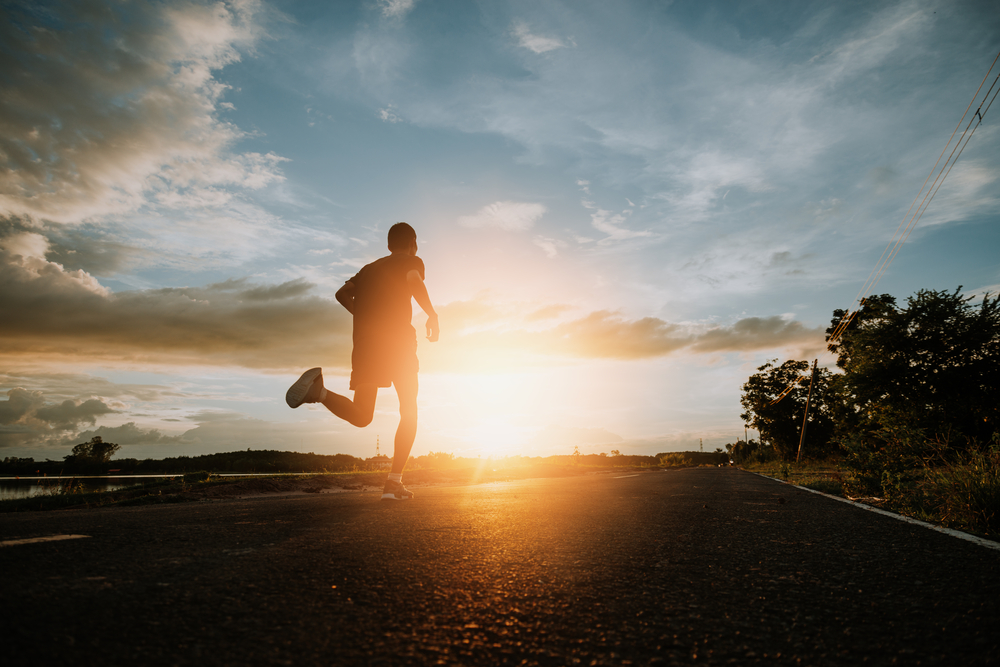Shortly after extolling the virtues of trail running in an essay for GQ Magazine—finding peace in nature, escaping from the unforgiving asphalt, building strength in your muscles—I failed to follow my own advice. I ran on a road, and injured my knee. I massaged the inside of my leg on the drive home from the trail; I hoped for the best, but knew the worst was coming. After a night of ice and aspirin, I woke with a stinging pain in my knee. It was a familiar feeling.
While running track for Susquehanna University, I would head down long country roads with the other middle-distance runners. The farmlands of central Pennsylvania are cross-hatched by those quiet roads, empty, save for slow-moving trucks and even the occasional horse-drawn carriage. My old-school coach was a proponent of long, slow distance, so the group of us would head for hour-long jaunts down roads that felt like jackhammers against my knees.
Runners learn to move through pain. Our bodies often ache, particularly when we push them. Running is a competition against the other people on the track, but beyond that, it is a race against time—an unforgiving competitor that doesn’t rest. In order to get better times, we can’t spend time waiting for an injury to heal completely before returning to the track. It is a hard-head notion—but so is running itself.
But one afternoon before practice, while I sat in the training room ice bath, I accepted that my college career needed to end. Injury begets injury, and I couldn’t simply will them away. I didn’t run for months, and when I came back, I headed to the soft, sloping trails of parks and forests instead of roads. Years later, I still stayed off the roads, knowing what they would do to me. Running trails meant a place of physical escape; a space off the beaten path, where the forest would close behind me, and the sounds and sights of daily life might disappear.
George A. Sheehan—the Irish-Catholic cardiologist turned running guru, who was one of the founders of the Christian Brothers Academy in southern New Jersey—felt that running was transformative. When runners race, or any time they push themselves, the “subconscious is being purged and rinsed and cleansed. It is being emptied of all the mean and embarrassing things I have accumulated during my life. My bedrock concept of myself and the world is being refurbished. I am replacing all the depressing memories, all the dirt and debris, with something that is bright and clean and positive. I am hearing the good news.”
There is a space for the good news when running because somewhere between exhaustion and elation resides a clearness of sense and soul. Yet running can also trick runners into complacency. Over time, we can forget old lessons and old rhythms. We can become faster, but not always become wiser.
Years of running on trails had caused me to forget old lessons. While on that recent run that caused my injury, I knew that I could take a section of road as a shortcut between two rail-trails. Experience is a good teacher, but only if we remember it. The decision to run on a road is a small one in the grand scheme of life, but runners know that we fill the monotony of our sport with metaphors.
After a month of no running—and the frustrating feeling of being inert when my body wants to move—I’m back on the trails. I’m a bit slower and more careful. I will let the past be my guide. Often in life we know a decision is wrong when we make it; if only we can learn to stop ourselves, take a breath, and remember we can make a change—whether running, or otherwise.
I’m going to stay off the loud roads; I’m going to remain in the quiet woods. I’m going to keep doing what has worked for me—and I’m going to keep my eyes and heart open to that stir of bad choices. I’m going to stay on that straight, long trail, and no matter how far I go, I will remember where I started, and what has happened along the way.
Nick Ripatrazone has written for Rolling Stone, Esquire, The Atlantic, and is a Contributing Editor for The Millions. He is writing a book on Catholic culture and literature in America for Fortress Press.

